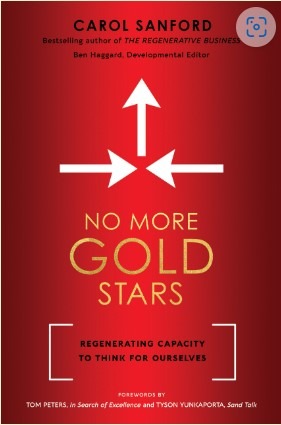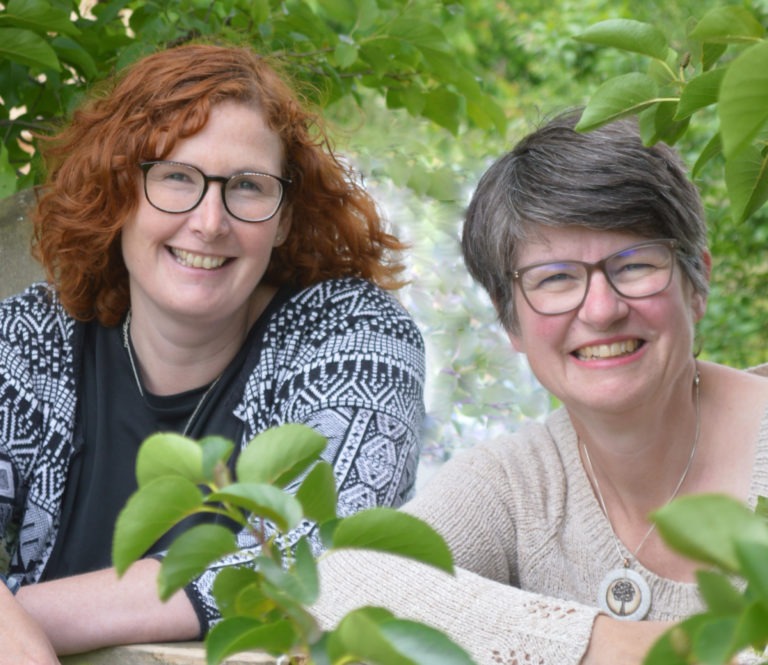
Rooted Leadership talk at Disrupt HR
Want to hear regenerative leadership explained in 5 minutes? Here’s a video of me speaking at Disrupt HR event in Nottingham. If you’d like to
| Think like a Tree shortlisted for international Lush Spring Prize 2023 73 projects from around the world have been shortlisted for the £225,000 Lush Spring Prize for environmental and social regeneration. The 2023 Lush Spring Prize received over 350 applications, with over 40 countries being represented in the final shortlist with applications from every continent except Antarctica. The shortlist is diverse, covering multiple bioregions and demonstrating many different approaches to regenerative design and work. These can all be explored on the Spring Prize website: springprize.org. Shortlisted in the Influence category, Think like a Tree, was founded in the National Forest by Sarah Spencer in 2017. Sarah recognised that the valuable tools, principles and ethics from permaculture, biomimicry, and other nature-inspired design solutions, had application to all human systems, but felt this valuable information was not reaching the mainstream fast enough in the context of the inter-connecting crises of a rapidly warming world, ecological destruction and mental and physical ill-health. The ultimate aim of Think like a Tree is to bring regenerative, nature-inspired ideas to the mainstream. It recognises these approaches as the only solutions known to work on planet Earth. All its work aims to ‘meet people where they are’ in a language that is familiar and welcoming, valuing diversity. It campaigns and raises awareness of the importance of nature as a teacher, and ecosystems as a model for human systems, and tries to reach as diverse audiences as possible, both in the UK and worldwide. The project comprises a number of different elements: The Think like a Tree programme supports individuals to design the life they want with the ethics of Earth Care, People Care and Fair Share woven in. The book Think like a Tree: The natural principles guide to life by Sarah Spencer enabled greater reach. The Think Like a Forest programme is targeted at businesses and organisations and how these can become regenerative, using the principles of natural ecosystems as a guide. 17 facilitators have been trained already in the UK, at Whistlewood Common, south Derbyshire, in the National Forest, with 2023 seeing the movement expand worldwide. Sarah is overjoyed at the news: “The idea of learning from nature’s wisdom is gaining ground in a number of different spheres – from rewiliding and regenerative agriculture, to economics, wellbeing and regenerative leadership, so I am delighted that Think like a Tree’s work in bringing this to a mainstream audience, has been recognised. Our programmes support individuals and organisations to be a force for good in the world, both in social and ecological terms, allowing people and planet to thrive. I would love to thank everyone who has supported Think like a Tree on its journey, and acknowledge the dedication of Think like a Tree facilitators who develop and deliver high quality training and resources to a wide variety of audiences. To be shortlisted amongst projects from around the globe is truly humbling, and I hope this will bring inspiration to all those sitting at home, worried about the state of the world, yet wondering whether they are too small to make a difference.” Amongst the diversity some common themes emerge. Many shortlisted projects are being led and shaped by the communities they serve. Despite many working on a relatively small scale, as a whole they respond to global challenges and their ripple effects e.g. the climate emergency, the COVID-19 pandemic and the war in Ukraine’s impact in Europe and much of the Global South. Indigenous groups living across the Amazon bioregion are on the frontlines defending rainforests from fossil fuel companies, while many organisations across the world are using regenerative practices to build health and resilience in the face of the climate crises and the impacts that are already being felt. The COVID-19 pandemic delayed important work and put many communities at significant risk. Many of the shortlisted projects, despite having a core focus on environmental regeneration, have woven responses to this into their work. From setting up community health centres based on alternative currencies, barter, or solidarity economies, through to supporting people struggling with mental health challenges. They understand and demonstrate the interconnection between caring for people and caring for the planet. Project applicants in Palestine and Ukraine are both directly impacted and responding to occupation and conflict. However, the Russian war in Ukraine is also having devastating impacts on the food security of communities across Africa, particularly those already experiencing displacement and climate impacts. Despite these huge challenges every project on the shortlist is demonstrating an alternative to climate disaster, to ecological breakdown, to conflict and to inequality. Together they offer a story of hope, resilience and holistic practical action. They are re-developing ways to live in harmony with nature and each other. They are generating renewable resources, restoring ecosystems, nurturing solidarity and building health, wholeness and resilience. They are bringing life back to damaged land and oceans, and reversing silent springs. What is the LUSH Spring Prize? The LUSH Spring Prize is a joint venture between LUSH Cosmetics and Ethical Consumer and is now in its fifth prize cycle, having started in 2017. At the end of the 2023 prize cycle, the Spring Prize will have distributed more than £1 million to regenerative projects worldwide. The LUSH Spring Prize was set up to support ‘regenerative’ projects – those that go beyond sustainability by taking holistic approaches to building the health of ecology, economy and social systems. It seeks to support those who are leaving the world lusher than they found it, and are actively restoring all the systems they are part of. By supporting regenerative projects the Spring Prize hopes to raise the profile of the movement as a whole to inspire more individuals, groups, communities, funders, media platforms and businesses to start engaging with regenerative processes. Final events and award ceremony A celebration and several skill sharing events will be held in May 2023. These events seek to celebrate the work of prize recipients and shortlisted projects, whilst creating spaces for peer learning, where groups can share effective practice with one another and network in a safe and supportive space. 2023’s Spring Prize recipients will be publicly announced during this time, having been decided by a diverse panel of judges. The Spring Prize judging panel is made up of people drawn from a diverse range of movements that represent regenerative design, permaculture, food sovereignty, transition towns, biomimicry, eco-village networks and various social justice movements. Each prize cycle a ‘Lush Customer Judge’ and ‘Lush Staff Judge’ are also selected to act as additional independent members of the judging panel. You can read more about the judges here: Spring Prize Judging Panel. |

Want to hear regenerative leadership explained in 5 minutes? Here’s a video of me speaking at Disrupt HR event in Nottingham. If you’d like to

In “No More Gold Stars,” Carol Sanford challenges conventional notions of achievement and success. Carol is a renowned business consultant and educator and what struck

This week has felt a little bit epic! I have found myself taking deep, exhaling breaths as I sit with the medley of feelings I have